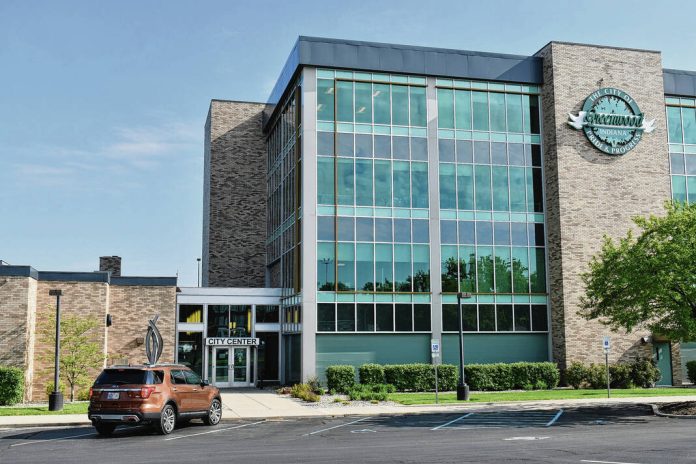Greenwood city council members are heavily debating a request for a maximum property tax levy appeal for 2024.
As part of the city’s 2024 budget process, officials plan to ask the state of Indiana for a maximum property tax levy appeal, a move designed to give government units relief from levy limits by giving them more funds to fulfill governmental responsibilities. Greenwood’s planned appeal would allow it to receive up to 2% more, about $1.4 million more, in tax revenue since the city grew 9% faster than the state over the last three years.
The appeal will allow the city to be able to purchase a new fire engine and fund street work. It is not expected to have a significant impact on residents’ property tax bills, officials previously said.
During a city council meeting Monday, city council members and city officials discussed the appeal in detail and debated it’s merits. 2024 would be the second year in a row the city has asked for an appeal.
After discussing it for nearly 45 minutes, council members voted 5-4 in favor of moving it through to second reading — which is when final action on it will take place. Council members Ron Bates, Mike Campbell, David Hopper, Linda Gibson and Ezra Hill voted in favor of the resolution, while council members Erin Betron, Dave Lekse, Brad Pendleton and Michael Williams voted against.

State Rep. Michelle Davis, R-Whiteland, asked the city council about the appeal during public comments. Several residents had reached out to her with questions about the appeal, and she had met with the Indiana Department of Local Government Finance about it as well, she said.
Although Davis understood the purpose of the appeal, she said had concerns about how it could “further increase the burden” on taxpayers.
Davis asked about what the city has done to try to resolve the issue instead of putting it on taxpayers, and what function would not be carried out if the city did not have the funds and what the council could do to not further burden taxpayers. Since this is the second year in a row the city has planned to ask for an appeal, she also asked if the city planned to ask for it again next year.
“I am confident that the members of the Greenwood Common Council will do their due diligence as public servants to ask questions and work together to find the solution without putting further burdens on the taxpayer,” Davis said.
Why the appeal?
Greenwood Fire Chief Jayme Washel, who supports the excess levy appeal request, told the council that the additional revenue from the appeal would be used to support fire department operations. The department has seen an increase in calls as the city’s population has grown.
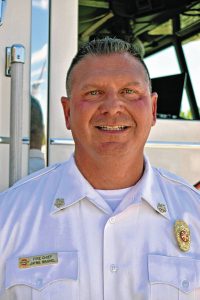
“In 2018, the fire department experienced a run call volume of 6,800 calls,” Washel said. “This year, we’re on pace to do over 9,000 calls. That’s approximately 31% increase just over five years.”
The levy will also be used for both new and continued training opportunities for fire department personnel, he said.
The maximum property levy was locked by the state in 1973, and Greenwood was in a very different position then, said Greg Wright, city controller.
The fire department was 100% volunteer with no paid firefighting staff, whereas now there are four firehouses with a fifth planned. Each station now has three shifts with at least four full-time paid firefighters on each piece of apparatus, Wright said.
In terms of population, Greenwood had 11,869 residents in the 1970 Census. In the 2020 Census, the population was 63,830 — a 438% increase, he said.
Additionally, firefighters and police officers are patrolling more streets, which means they need more vehicles and use more gas, Wright said.
Greenwood’s total 2023 tax levies were $23,877,752, and with the city’s current population, that works out to $374.08 per resident in property taxes generated. Franklin’s tax levies were $15,479,047, about $611.51 per resident, he said.
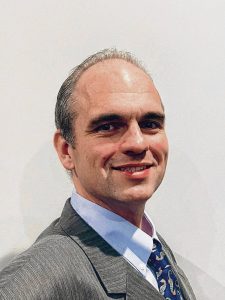
That’s because Franklin’s levy started at a higher point when the maximum levy was locked in 1973, he said.
“Our levies were locked in at a time when we didn’t have this population, we didn’t have the city size, we didn’t have all the services that we’re offering now,” Wright said. “And the growth just for the minimum that we’re getting is not enough to get us there.”
The levy appeal offers the city a chance to catch up with the growth and address public safety, Wright said.
“All spring we were being told that we weren’t adequately funding public safety. This is the solution to bring in more money to fund those services,” he said. “The only other way to put more more funding on one service is to take it away from something else.”
Addressing questions
For the last 50 years, the city has operated on “very tight margins” to try to resolve the issue instead of going to taxpayers, Wright said.
After the maximum levy was introduced, the city brought in paid firefighters under the levies they had — often at the cost of not growing other departments. Other communities did not have this issue, Wright said.
Although there are a handful of options for the city’s revenues, officials only have complete control over one: user fees. No matter where the revenue comes in, taxpayers are going to foot the bill, so officials try to operate “extremely efficiently,” Wright said.
Wright also addressed last year’s levy appeal. When it was requested, they were told by the Department of Local Government Finance that although the city would have qualified for an over 11% appeal, they were limited to a 2% increase, Wright said.
This year, a different DLGF representative said the city could get the whole 9% they are asking for. However, Wright doesn’t expect the city to qualify for levy appeals much longer, as the city would need a higher percentage of assessed value growth to qualify — something that may not be possible after next year, he said.
Government functions would continue to be carried out regardless of whether the levy appeal is requested. What is in question is whether would they be carried out at the level residents have come to expect when the costs of providing services are growing faster than the growth in revenue due to inflation, he said.
Revenues from income taxes and a few other taxes are tied to the city’s property tax distributions. So if the city gives up property tax dollars, they will give up income and excise tax dollars as well, Wright said.
“We generate most of the income taxes for the county because we have the biggest population,” he said. “I would consider a disservice to our residents to not try to capture as much of their money back into Greenwood where it benefits them.”
As for the effects on taxpayers, the answer is complicated, he said. There are several taxing districts that Greenwood residents pay taxes for, each with different rates. Depending on where residents live, they could pay taxes for one of two library districts, one of three townships, one of three school districts and one of two fire districts, along with the city and county rates.
The city’s goal is to keep the city’s tax rate flat, which it has done over the last several years, Wright said. But officials can’t control what other districts do, or what the county assesses properties at, he said.
If a resident was already at the 1% residential property tax cap and had the homestead deduction, they wouldn’t pay anything with the appeal, Wright said. Most of the burden will likely be absorbed by commercial and industrial properties, whose tax cap is at 3%, or the 2% payers: agricultural and rentals, he said.
“If you’re already in the tax cap, it doesn’t bother you,” Wright said. “So we’ve tried to mitigate as many of the options that would hit residential taxpayers. The biggest piece will then be absorbed by those who are not at the tax gap and don’t get deductions, which is your two or 3% taxpayers.”
Council members debate
Among the questions council member Erin Betron asked about the appeal was whether there was a downside to this. Wright does not see much of one, he said.
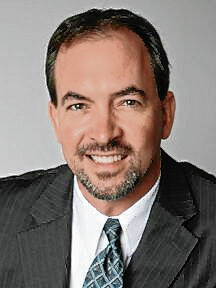
Ninety percent of the expenses in the fire fund are salaries, wages and benefits, and about 75 to 80% of the city’s expenses as a whole are salaries, wages and benefits. If officials want to move the needle on these things, the levy appeal is the option, Wright said.
Council member Dave Lekse asked what would happen if the city got the full amount — $1.4 million — and its share of income tax from the county goes up. Wright said it depends on the other taxing districts’ share of the funds, but if things remain consistent, the city could see movement of between 3 to 5% in the final amount.
However, Wright later said the city would likely not get the full $1.4 million with the appeal, but around $1.2 million due to tax cap effects.
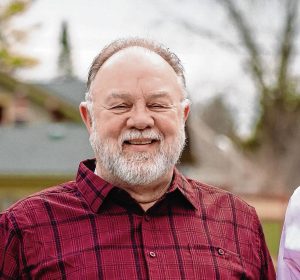
Council member Mike Campbell asked for clarification about the city’s maximum levy appeal, and how it does not automatically increase the tax rate. Wright said this interpretation was correct, and that a a third factor, property assessments, factors into the final tax bills.
The increase in assessed value makes residents pay more in taxes, regardless of what the rate is, Campbell said.
With the city continuing to grow and officials trying to get a new fire station online in 2026, council member Linda Gibson asked how could the council pass up an opportunity to help add additional funds.
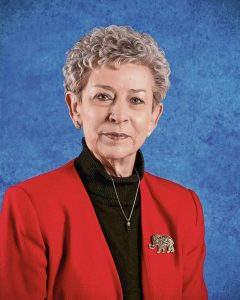
“This is our one opportunity, and we always just take what’s given to us,” Gibson said. “It’s time that we … have more of the pot. We’re not trying to get the full $1.4 million, we’re just trying to get an increase that kind of levels it out.”
Council member David Hopper asked whether they could specify the about $1.4 million in revenues from the appeal be allocated toward public safety. Property tax revenues are assigned to the general fund, and Wright said specifying that the funds go to a certain function is problematic.
The administration has tried to focus most efforts on growing the police and fire departments, and Wright says it’s likely that most of the funds will go to public safety just based on need.
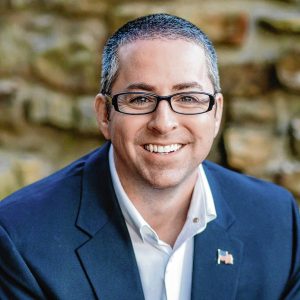
“The fact that we’re adding police officers every year, we’re adding police cars every year — the services that are needed, they’re growing every year. There’s no way around it,” he said.
Rare vote to close debate
Near the end of the discussion, council member Brad Pendleton expressed concern about the levy appeal’s timing.
The request is coming at a time when the city is planning to start budgeting for additional firefighters for the new fire station, but nobody will be hired for a few years. It also comes listed on an agenda where there was also a resolution that mentioned a police staffing shortage and multiple ordinances upping the salaries of elected officials, Pendleton said.
“I don’t know why we’re looking at that for a place for us to spend more,” he said about the salary ordinances.
Pendleton did not see why the 28% population growth should be put on the back of taxpayers. The growth has largely been the result of rezonings by the council and that growth is not allowing the council to carry out government functions in 2024, he said.
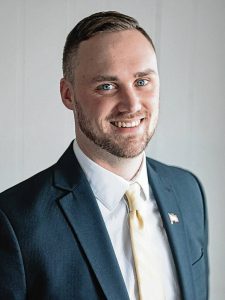
“What we saw last year during this presentation, I’m not seeing it now,” he said. “And without being able to say this is for public safety, I don’t know that I can really, based off of what’s on the agenda right here, I don’t know that I can take that.”
After these comments, Bates asked for a rare vote to close discussions on the appeal — which had been ongoing for 40 minutes. This passed 8-1, with Hopper voting against.
The council then voted 5-4 to pass the resolution on first reading. It will be before the council for a final reading at their next meeting on Oct. 16.
Davis said Tuesday she appreciated the city and the council for answering her questions about the appeal. She hopes they can find a way to address the situation “without putting a burden on the taxpayers,” she said.


